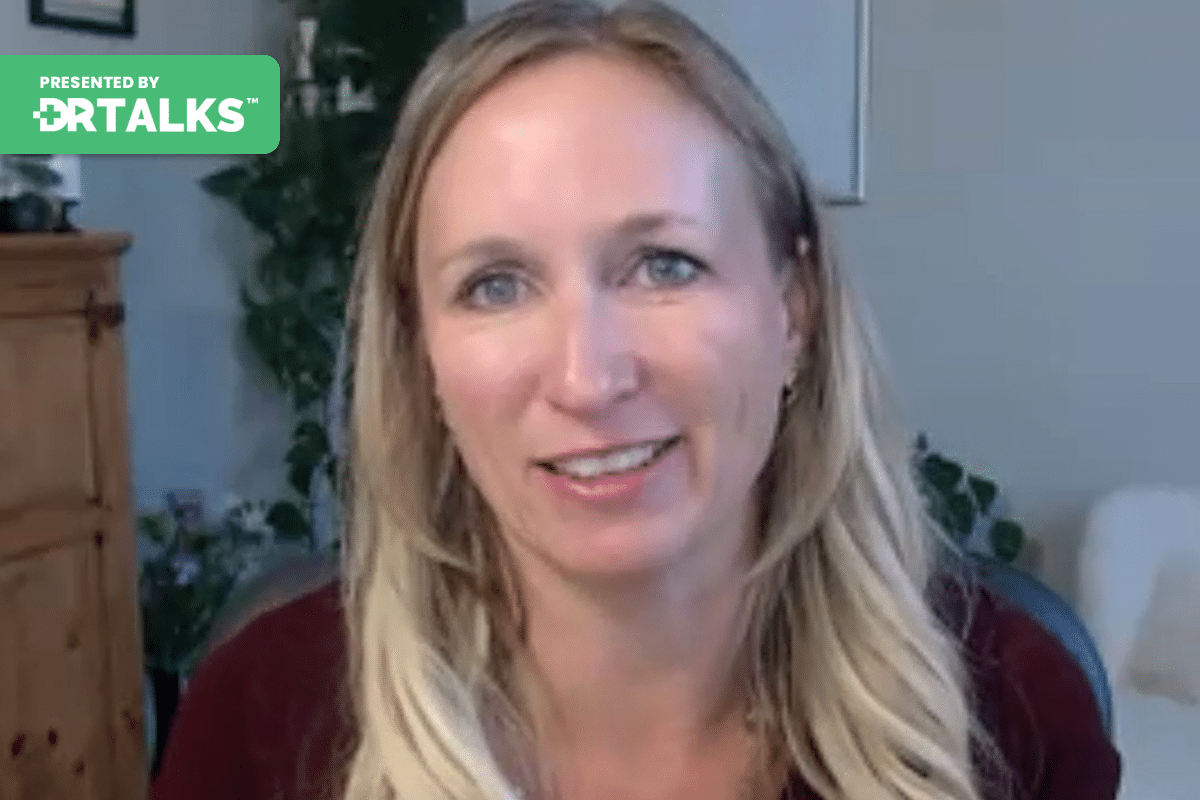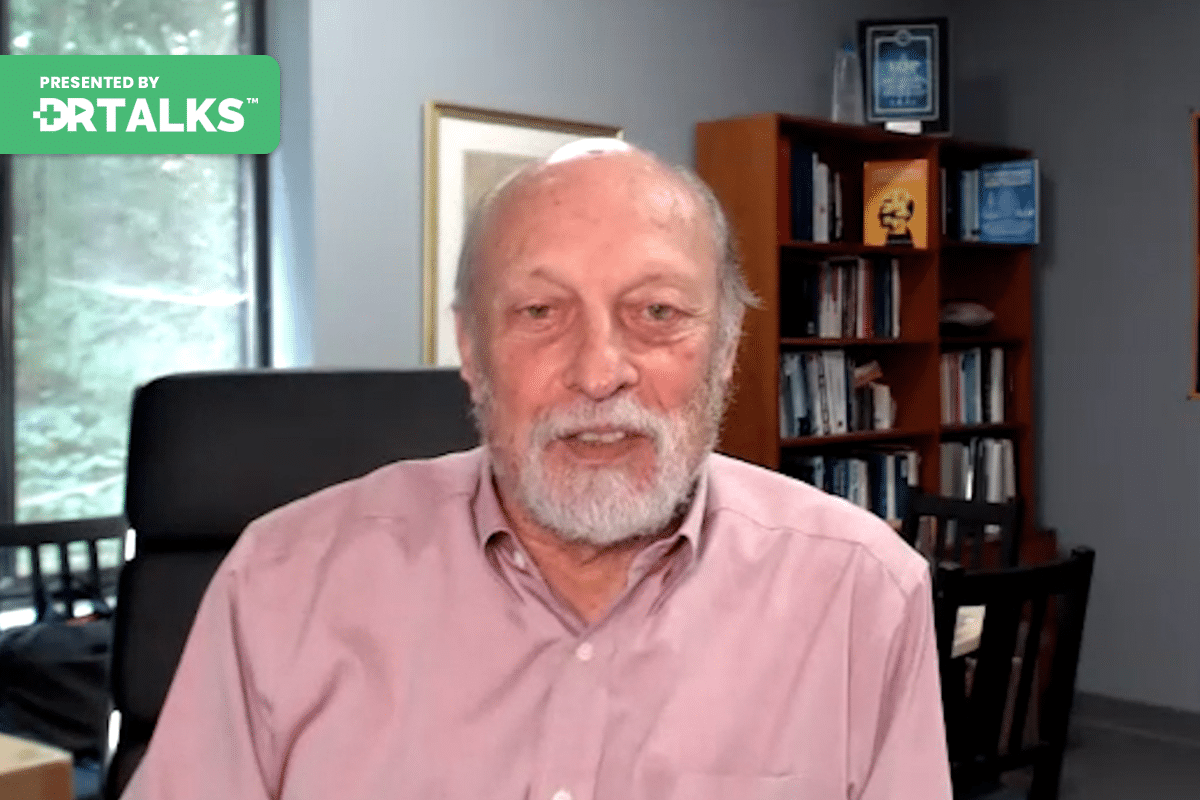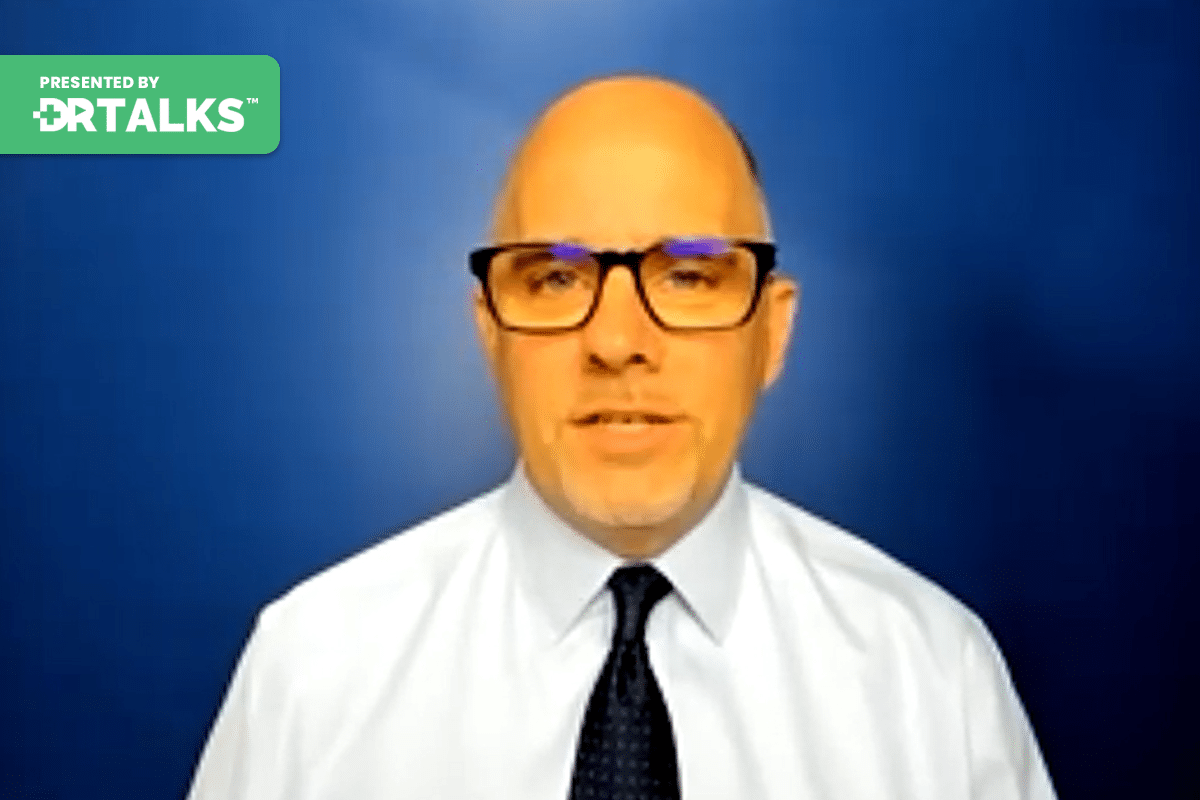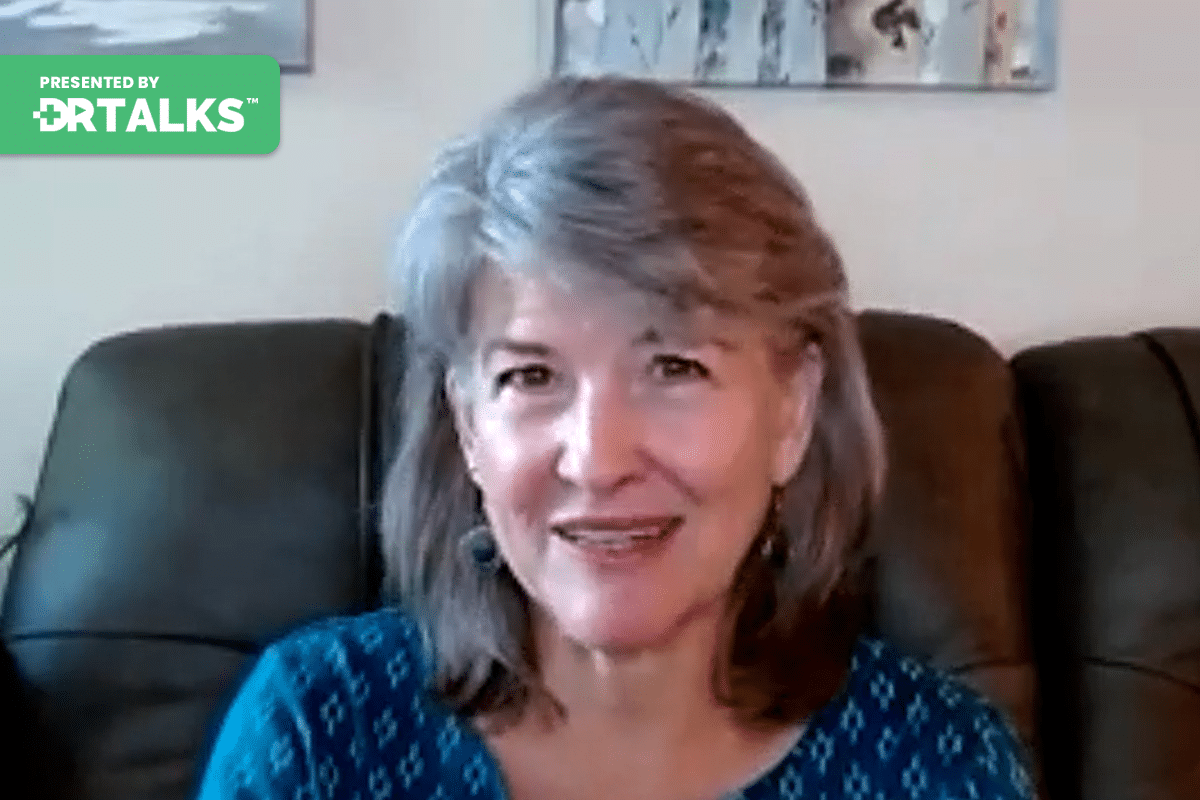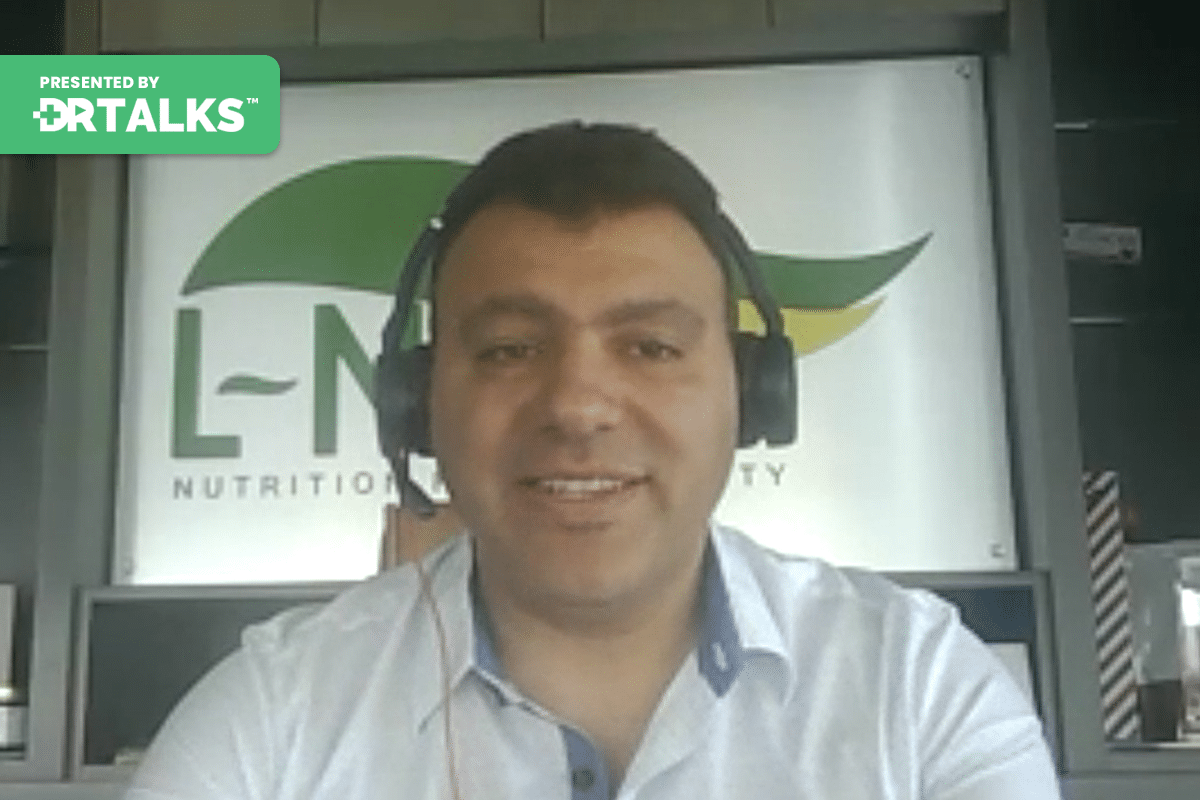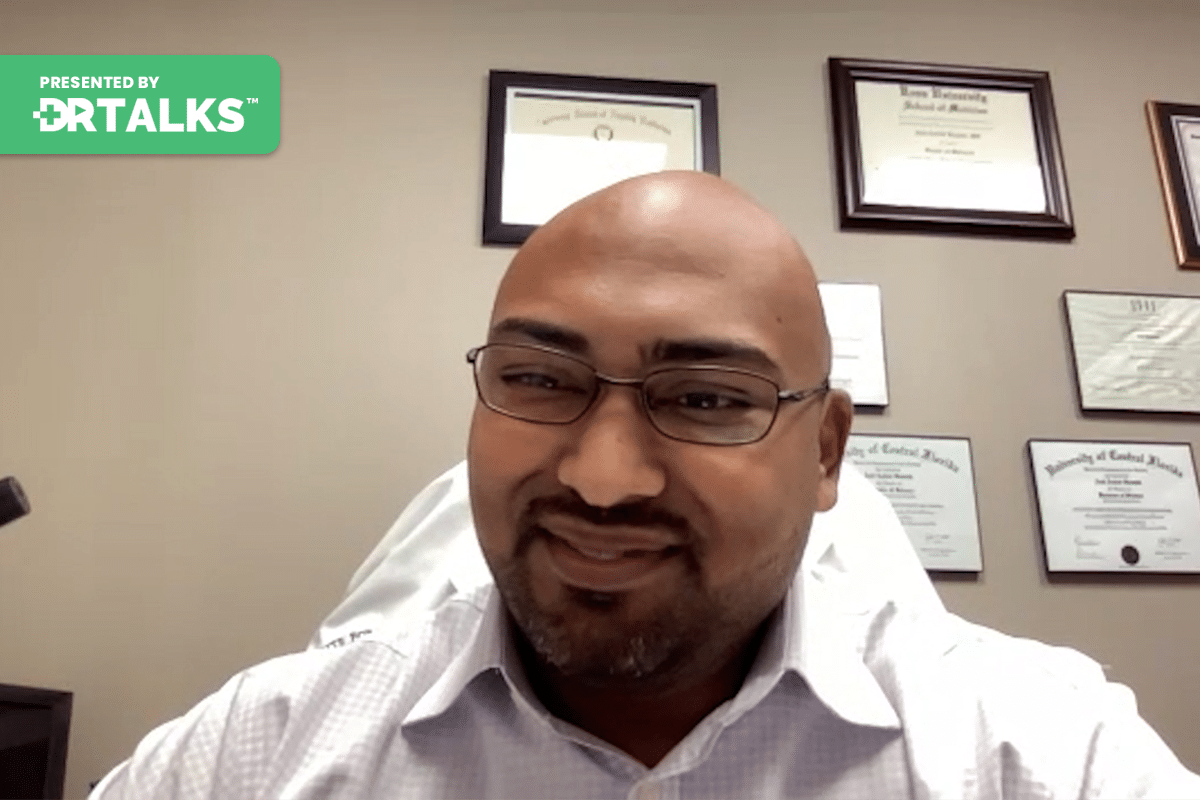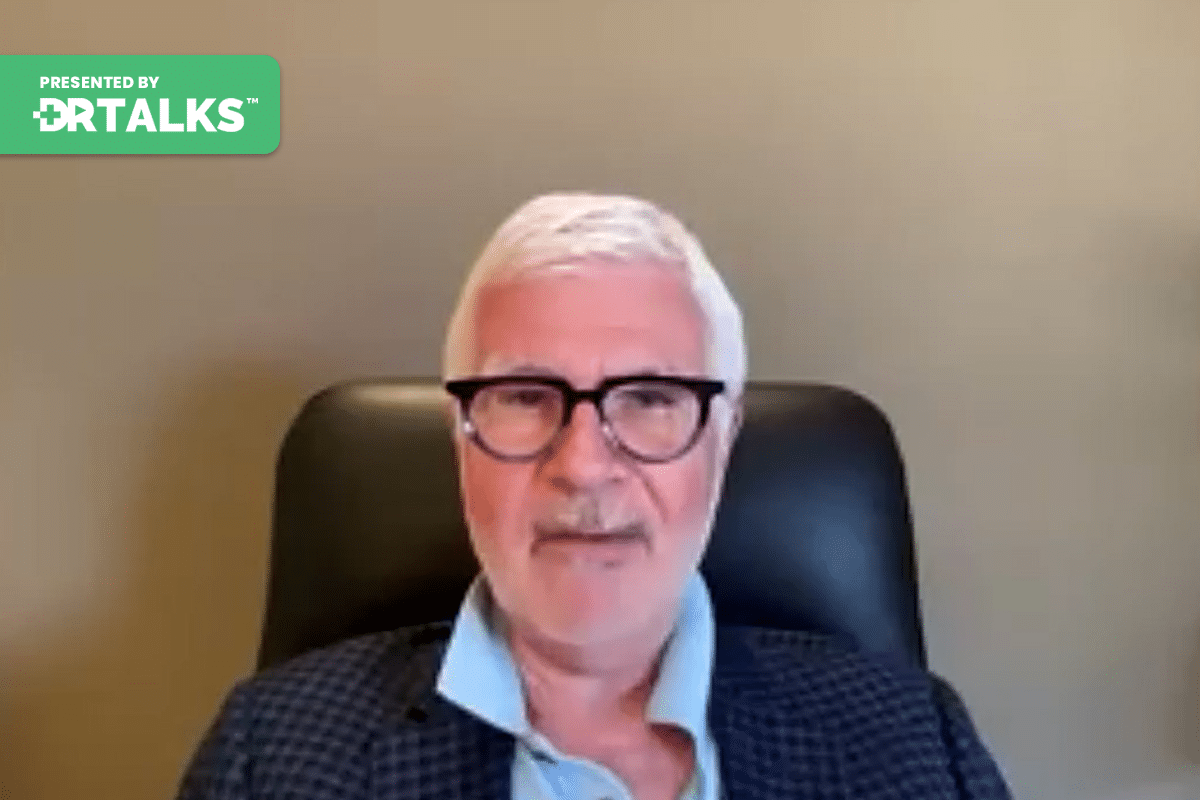Join the discussion below
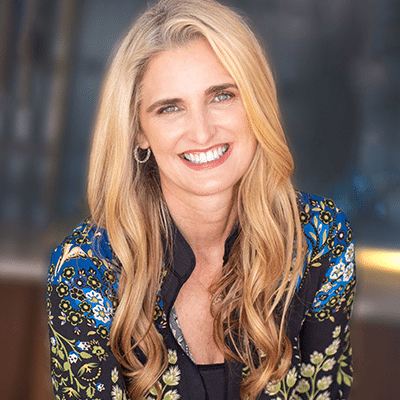
Dr. Ann Shippy is Board Certified in Internal Medicine and Certified in Functional Medicine. She operates a successful private practice in Austin, TX where she is known for her compassionate, attentive, and tireless approach to caring for her patients. She has gained a considerable reputation for successfully diagnosing and treating... Read More

Dr. Diane Mueller is the founder of My Libido Doc, an online community dedicated to helping women reclaim their desire. My Libido Doc provides education, community and health care services for women. Alongside her double doctorate in Naturopathic Medicine and Acupuncture, Dr. Diane extensively researches libido, pleasure and women's health... Read More
- Engage in important conversations about the underlying effects of mold on health and relationships
- Understand the tools available for healing and recovery from mold-related health challenges
- Embrace the power of intuition in navigating the journey of mold illness and its impacts
- This video is part of the Mold, Mycotoxin, and Chronic Illness Summit
Related Topics
Adrenal System, Anxiety, Blood Flow, Box Breathing, Breathwork, Chronic Illness, Dopamine Levels, Education, Guilt, Hormone System, Libido, Mold, Mycotoxins, Neurotransmitters, Oxygenation, Partner, Relationships, Relaxation, Root Causes, SpouseAnn Shippy, MD
Welcome to the Mold, Mycotoxin, and Chronic Illness Summit. I am your host, Dr. Ann Shippy. Today we get to speak with Dr. Diane Mueller. She’s a naturopath. She’s also trained in acupuncture and oriental medicine. quite a broad background there. She’s a survivor of mold illness, Lyme disease, and irritable bowel syndrome. Today we get to explore the effects of mold and chronic illness on our libido and relationships. This is a great topic because it is such an important part of life. Thank you so much for joining us.
Diane Mueller, ND, DAOM, LAc
I thank you so much for having me. Dr. Shippy, it is an important topic. I am so pleased to be talking about this today.
Ann Shippy, MD
I know it is a real interest and passion for you because it definitely and for most people is an important part of how they feel about themselves and their partners, and it is such a big problem when people are dealing with mold and chronic illness. You want to dig in and talk about some of the things and the impacts that you see on relationships.
Diane Mueller, ND, DAOM, LAc
Sure. Yes. Let’s go there. I think the impacts of mold, infections, and toxins on relationships are two different ways we can go with this conversation. One is, as I know from some of the other speakers you’ve had on this summit, that there is an underlying thing that happens when one person in a house is reacting to mold and another person is not. One of the things I see in my mold and chronic infection clinic is that there’s this huge disparity that can happen when a spouse or partner may not believe the other person is sick, because how could the house be doing it when one person is sick and another person’s not? I am sure you covered that in some of the other interviews here, so I won’t go into that. But it does create this level of rift. I think that can happen between two people who are not believed, maybe not feeling safe talking about the emotions that go with this. I think that’s one important topic that there’s so much confusion on. Why is one person sick? Nobody is sick when a house is sick itself. Then there’s the more safe physiological thing that’s happening. There’s a thing that’s happening inside people’s bodies when mold comes in, and we see so many things get dysregulated, from a hormone, from a neurotransmitter, or a brain health perspective, that impact our drive. We can say that one of the hormones that impact a sexual drive the most is dopamine, and dopamine serves as motivation for so many things in life. But our sexuality is one of those things that gets us motivated. This is why, oftentimes, too, there is a novelty thing with a new partner. When people get so excited about their sex life with a new partner, that is also driven by the dopamine response. But of course, in longer-term relationships, we have a safe space where dopamine may naturally dwindle because novelty has gone away. We already, in a longer-term relationship, tend to have to overcome, say, a change in dopamine by trying different things and exploring our sexuality in different ways. But then we have mold and toxins. Here’s where it gets messy because mold and the mycotoxins that are associated with mold can land on the receptors for the neurotransmitter. The neurotransmitters we’re talking about are things like adrenaline, noradrenaline, and dopamine, for example. When the mycotoxins land on these types of receptors, one of two things will happen, depending on the uniqueness of how the mycotoxins are affecting them. Either it can stimulate the receptor and somebody can get so anxious because now they’ve got all this dopamine and all this adrenaline running through their system, or that can happen. when that happens we’re super anxious, which we see a lot in Mycotoxins.
Ann Shippy, MD
One of the most common symptoms.
Diane Mueller, ND, DAOM, LAc
That is, it’s like we’re not oftentimes driven to sacks and to connect with our partner when we’re just in this state. It is so common. then we can also see another problem where we can see changes in things like dopamine levels in the opposite ways where we can lose our motivation and our drive. I’ll start because I said a lot there. But there are more mechanisms, even beyond what I am talking about here, that is the core reason why somebody isn’t driven to partner, relationship, sexuality, or libido when they’re dealing with these chronic situations.
Ann Shippy, MD
When you see a patient who’s taking high anxiety first, what’s your approach? What are you thinking? These are the first steps that you like to take.
Diane Mueller, ND, DAOM, LAc
Yes. I think, like any of us who are practicing in this profession, the first step is finding the cause. Is it mycotoxins? Is it another environmental toxin? It is a chronic infection with biotoxins. Is it just due to a dysfunction in the adrenal system where the adrenals are pumping out a ton of cortisol or a lack of cortisol? Doing the diagnostic test. But one of the things that I think is super important when we are in that position is looking for the tests and looking for the root causes, and there’s this lag time. We like to order the test, and everybody gets so excited because maybe there’s finally an answer, but there’s a lag time between when we’re running the tests and when we get the results. So one of the things I like doing during this time is starting to work on mine, starting to say, support the hormone system through breathwork, and there’s a lot of different breathwork techniques out there. I like things like box breathing or something called a four, seven, eight breath that is designed to calm the system. There are certain techniques, like hyperventilating, that can sometimes increase adrenaline. While those work for some people and there’s reason to do those types of breathwork techniques in certain situations, I find that things that are calming to the nervous system are important. Then, talk about relationships.
Ann Shippy, MD
For just a second, people who aren’t familiar with breathwork wonder why just changing your breath would work. Let’s spend a minute on that because it is such a tool that you can take away now that it can start to change your physiology. Thank you for mentioning that. Let’s dig a little deeper, and then we’ll come back to the next segway.
Diane Mueller, ND, DAOM, LAc
Sure. Absolutely. I’m happy to. Breathwork is like box breathing. I like box breathing because it is an easy thing, I think, for people to get a sense of its power. The reason I think it is easy for people to get a sense of the power is because techniques like this have been used by organizations like the Navy SEALs. Those guys are doing these sorts of things that help repair their nervous systems for the intensity that comes with their work. In my mind, that alone is a lot of proof about the power of this claim. It is pretty easy to get into with the box breathing we can do. It is kind of like making your breath into a box. You start with it. Inhale a four. It is a very slow count of four. You hold your breath for that an equal amount for four counts. You exhale for four, and then you hold after the exhale for four. Typically, with box breathing, we want to increase our neuronal relaxation, that is, our neuronal response, by then doing a round of five and so of five, five, five, five to make it, square essentially is it is a square box, and so then we’re doing six, seven, etc.
Now the thing I would like to add to this community is that most of the time I see those who have mycotoxin illness for maybe a long time for a hold. You might find in the beginning that you can’t even do a five-sided or six-sided box, and maybe you find that you need to make your box even more three-sided. It is a start where you are at. What I see, though, is that when people practice this, there is a level of, say, getting the brain retrained. Another thing that happens is, I think, leads to a lot of relaxation and even leads back into some of the other things we’re going to talk about today, which are your circulatory system, which is also related to mold, and your sexuality. When you are in those holes, especially when it is cold after the exhale, when you are depriving your body of oxygen, one of the things that your body is stimulated to do is increase a molecule called VEGF. This is the particular molecule that allows and sends a signal for your body to generate and grow new blood vessels. One of the things we see with mycotoxin illness is that some of the symptoms we see with low sexual drive are actually both related to not having enough blood flow. When we do something like box breeding, we hold our breath. We are increasing the signal to grow new blood vessels, which is further allowing your whole body or cells, but also your genitalia, to become more oxygenated. That’s going to help with so many symptoms, just getting blood flow to the cells.
Ann Shippy, MD
Yes, that’s great. You were on the right path, and we had somebody with either low motivation or high anxiety. You send up the test to find the root cause, so you can quote the originating factor. But in the meantime, you are starting to work on your mind. some of the support systems by doing recommended things like box breathing and what else.
Diane Mueller, ND, DAOM, LAc
Yes, great. From there, you also know that since we’re tying this into sexuality, this is a good time to think about relationships and where the sexuality component comes into this. Sometimes I find it difficult when we’re talking about getting a spouse or partner oriented to why they’re not sick in a house and you are. Sometimes there’s an opportunity to educate, to watch videos, and to do these sorts of things. But another helpful thing, especially when they see their libido fall, is that they feel a sense of guilt. There’s a sense of wanting to show up for a partner in a certain way, but feeling like, “How can I do that when I can barely even get myself out of bed in the morning?” This is an opportunity to talk about when to discuss with a partner about sexuality, but also about any of this kind of stuff. I do a lot of coaching for my clients on talking to their partner, and some of the basic things with this are that when we’re talking about the sexual side of things, if you are having a hard discussion with your partner on something that you want to do differently or something that you need, or maybe you are trying to keep your relationship alive, it is like, when is there maybe even one time a week when you have the most energy? Where have you been this time of the week? You could have sex with your partner or have an intimate moment with your partner.
It is looking at those kinds of things to say, “Okay, where is that time? It is like, “Okay, 3:00.” For whatever reason, I have a little more energy. Is it possible that one day a week you guys can rearrange your schedule so you can be available? Maybe you can, maybe you can’t. But starting to have these conversations outside of the bedroom when you are in a relaxed place, asking your partner questions, asking if they’re open to talking about this, making it a safe space so we can go down some of those roads We can also do relaxing things for the body that people haven’t tried. A lot of people have tried things like GABA and these sorts of things. But another thing I do a lot, in the beginning, is use a lot of peptides that are also designed to calm the system and lower any sort of MCAS muscle activation or histamine response in very reactive people. There’s also a level of priming we’re doing here to get people ready for the next part.
Ann Shippy, MD
Okay, you’ve just touched on two gray areas. I want to get back to creating a safe space. Yes, many people never have the conversations that they want to have because they don’t feel safe. Let’s explore that. Then I want to come back and dive into peptides because that is magical sometimes.
Diane Mueller, ND, DAOM, LAc
Yes. One of the things I love about libido, is that it is a funny thing because I have a libido practice and a mold and lyme practice, and people are like, “How are these things related? Why do you ever practice?” But they’re very related. I say that because when we’re talking about safe space and we’re talking about sexuality in these kinds of conversations, I think what we do when we’re talking about libido and sexuality is almost like a practice for so many other areas of life.
Ann Shippy, MD
They’re not speaking up and having that conversation.
Diane Mueller, ND, DAOM, LAc
Exactly. We’re talking about these sorts of difficult conversations. One of the things that I think is important to remember, especially when we’re talking about sexuality, is that these conversations can hurt the ego because, as humans, especially in relationships, most of us have a desire to show up and provide certain things for our partners. If these kinds of conversations are done in a way where the person who is listening feels like, “Oh, I am not providing for my partner in this way,” it can lead to shutting down. It can lead to defensiveness, and it can lead to a sense where people are just not being heard, and the conversation kind of flounders.
Ann Shippy, MD
And the relationship unravels even more. It is that we’re holding it together.
Diane Mueller, ND, DAOM, LAc
Yes, exactly. One of the things I recommend is that when you are in intimacy, this is again applicable to life and not just the bedroom, but think about oftentimes the things that are going well for you. If you are now having sex and intimacy once a week, once a month, once a quarter, whenever it is, next time you engage that way, think about what parts are going well. Same with conversation, and the same with, like, what your partner’s providing for you outside the bedroom. When we’re approaching them, I tell people, “Hey, you are going to have an intense conversation. Do not have it in the bedroom.” You want to keep that association away from sexy places. Do not have it if you have engaged with your partner intimately, and you are like, “Oh, I want this thing to be different.” After that act is not the best time. We want to separate. We want to make sure we’re not adding anything that is negative or could produce a negative result. We want to make sure we’re being very careful about where we are having those conversations because when it comes to sexuality, we want our bedroom to be that place where it is like it is not going to have that charge, it is not going to have that memory of that other type of event.
Approaching a partner in a way by asking questions and saying, Hey, if we’re talking about sex, like, “Hey, I am so interested in getting deeper into this and connecting more with you. I would love to have a conversation. Is now a good time?” In asking that and then starting first with what’s going well, I love it when you do this. I love it when you do that. We want to program and help our partners understand what to do more of. But starting oftentimes with the good is a good way to soften and get more of the good without focusing on what you don’t like. Now, we can also talk about that, and that’s important to talk to your partner about. But when we’re doing it in a way, we’re softening it. We are talking about what they are providing, about how the parts are so wonderful, and we’re doing it with permission. Oftentimes, those conversations go a lot better.
Ann Shippy, MD
You’re focusing on what’s going well first, be it in a part of your house that’s not associated with sex or after sex because that’s such a tender time.
Diane Mueller, ND, DAOM, LAc
Yes, I can add something.
Ann Shippy, MD
You are asking questions, like getting curious.
Diane Mueller, ND, DAOM, LAc
Yes. The question we should touch on a little bit more is because the biggest thing is that we want to make sure that we are also in a receptive mode, meaning these conversations go a lot better if we’re not just telling our partner what we want, but we’re holding space for what they want. Maybe they know, maybe they don’t. But as an invitation and encouragement, I want to provide more in our sexual relationship. I want this to bring us closer, help us connect more, and make us feel more in love with each other and these kinds of things. When we say that, we can have an open invitation, even if they don’t have a suggestion, to maybe circle back around in a couple of weeks or a month and say, “Hey, what do you think about this? I want to connect more deeply with you.” I also find that softening these types of conversations creates this kind of space. What I think is important here is that it focuses on that space between the two because, in a partnership between two people, in some ways, there are three relationships. There’s a relationship that each person has with themselves, their own needs, and their desires. There, of course, is almost like a separate entity, the entity of we, and it is in these conversations, like the entity of we when we’re talking about sexuality, that is so important, and that is, we need to, in that scenario, come in to how do we make we better-holding space for everybody to contribute? It is interesting. As a Chinese medicine doctor, one of the things we talk about is relationships. There’s this kind of esoteric idea that there’s a shared circulatory system between two individuals. When people go through breakups, kind of one of the ways it is talked about as esoteric in Chinese medicine is that you are bleeding because you are cutting, which is like a circulatory system, and there’s like this bleed. We’re talking about this kind of energetic space that gets created between two people and allows both people to contribute to this conversation.
Ann Shippy, MD
That’s beautiful. I just find that a lot of times, when going through these kinds of illnesses, there end up being some so-called platinum diamond linings. The way that you are describing this stuff, finding some ways to strengthen our relationship could be one of those gifts that we receive from having to go through it. These are things.
Diane Mueller, ND, DAOM, LAc
Yes. I am glad you brought up silver linings because it is such an important and delicate topic, and I feel and say what I am about to say. Having gone through mold illness myself, if I had crazy dementia, I thought I was going to move to a deserted island and die. Please know that when I say this, I say it from a huge glazed-over.
Ann Shippy, MD
Very scary.
Diane Mueller, ND, DAOM, LAc
Yes, it was crazy. I did not like most people. No, I did not know what this was before. I knew what I knew now and didn’t know what was happening. It was so crazy and scary. Forgetting where you live is an intense thing.
Ann Shippy, MD
It was pretty severe.
Diane Mueller, ND, DAOM, LAc
Yes. It was quite severe. One of the silver linings is that I say this delicately because I know that it is very difficult in these moments to say, like, get me out of this. This is the worst thing that’s ever happened to me. How could there be any silver lining? But I do think there is something that happens when we go through something this crazy and severe where it can shed light on, say, thinking processes or belief processes that are maybe getting in our way of healing and our way of not just healing but of living an even more, happy, passionate life. Sometimes these things may shed light in this conversation on relationships around, like, this was hard on relationships. What I’ve also seen is that sometimes, when we do this in a very eloquent way, it can wind up bringing couples closer together because now we’re having these conversations that maybe we weren’t even having before this horrible thing happened.
Ann Shippy, MD
Anything else on creating a safe space or, if you are afraid to have the conversations, just getting them started will help people get to the end point of the possibility of deepening and strengthening the relationship.
Diane Mueller, ND, DAOM, LAc
I think it is essential to realize that there are studies that show that sexuality, libido, and sex life improve just by talking about it. Talking about it, we see that it is directly related to the improvement. even if the behavior doesn’t change, just by having those conversations. Another thing is that I would encourage you if you are scared to have these conversations with a partner. Another thing is, do you have a safe friend? You have a friend that you can start having if you will, because I know so many people who don’t even talk to their friends about these sorts of things, and they hold it all inside. Sometimes, even if you have a friend, you can start just by practicing with them and even just by opening up about this and saying, “Hey, can I just like to talk to you about a conversation that I want to have?” The idea behind this is not to throw a partner on the bus. You don’t even have to give a lot of details. If you want to protect your partner and all of that, but just say, how would you have a conversation about sex with your partner? To start, the idea is to normalize talking about these taboo things. I feel like we talk about things like clean food, clean air, clean water, good sleep, and not sitting too much. With all these foundations of health, we see so much of what happens with a healthy sexual life, like weight regulation, neurotransmitter regulation, stress hormone regulation, and on and on. I do feel that a healthy sexual life is part of the foundation of a healthy human life. Because it is so taboo, we can just find ways of normalizing it. Maybe this is even reading erotic literature. It could be so many different things. But what we’re trying to do here is help normalize the conversation in your mind and your psyche, so that when you go into a conversation with a partner, it is a little bit less scary because you’ve started to normalize it a little bit more internally.
Ann Shippy, MD
To even be able to have the inner conversations to know what you want to say or what you’d like the outcome to be. I think a lot of times we don’t even want to have an inner conversation.
Diane Mueller, ND, DAOM, LAc
I think you said something important: to just focus on the outcome. Going into these conversations and having a sense of what your goal is Is your goal just to open up a dialog? Is your goal to get some sort of resolution and to realize that the outcome might not happen? That is, what you want might not happen after that first conversation, but to have a sense of what would be a win. A win can sometimes be as much as taking that step over your fear to have that conversation. Just kind of looking at it, where are you trying to go so you stay focused on this conversation? I think that orientation to the outcome is a good point.
Ann Shippy, MD
That’s beautiful. Ready to move on to peptides?
Diane Mueller, ND, DAOM, LAc
Sure. I love peptides.
Ann Shippy, MD
Me too. What are your favorites? How do you approach this?
Diane Mueller, ND, DAOM, LAc
My favorite now is KPV. And KPV is an analog to MSH. A lot of people in the mold world know of the MSH melanocyte-stimulating hormone. That’s one of the serum tests that is sometimes used by people to track progress with mold. But essentially, what I’ve seen with KPV is that KPV has been able to slow down a histamine response. I say that is based upon what I’ve seen clinically, because what I’ve seen is that when people are super reactive to so many different things, whether it is histamine, intolerance, MCAS, or just hypersensitivity, one of the things that is so common for us practitioners that are working with this population is how do we get things into people that they need that they’re not going to react to? So what I’ve seen with KPV in my most reactive people is that they take a shower and break out into a rash. This crazy level of reactivity that can happen is that small amounts of KPV I’ve been able to get into people and where they can start tolerating this more and more, and then we can start moving on to other types of therapies that are more directly related to, say, detox and healing and these sorts of things. KPV is my current favorite. I use a bunch of different peptides, and the other one, which I do think is indicated hugely in more besides VIP, has been used for quite some time. The other big one is BPC-157, and what’s happening there is that there’s even research showing that mold will sometimes cause ulcers in people. Mycotoxins can damage the internal site of the cells of the small intestine.
Ann Shippy, MD
So much data is coming out about that now.
Diane Mueller, ND, DAOM, LAc
Yes. Interesting. Some of those studies show that part of the downstream impacts of mold is that we have this downstream impact where the gut gets damaged, the immune system freaks out, and we get autoimmune reactivity sometimes because of the damage in the intestinal lining and subsequent leaky gut, and those sorts of things. I think BPC, because of what we see, causes damage to the gastrointestinal tract. BPC-157 is a super important peptide, and it is another one that I do sometimes have to go slow with my patient population in the mold world with BPC, but it is another one that I frequently see that highly reactive people can get into their system.
Ann Shippy, MD
You are talking about orally so that is it is touching the gut.
Diane Mueller, ND, DAOM, LAc
Correct? Yes, exactly. Which is way nicer than doing injections. Highly accessible and available to people. It is an easy one to obtain as well.
Ann Shippy, MD
Yes. What else do you like?
Diane Mueller, ND, DAOM, LAc
Those are the main ones I use. I used TB4. I’ve used some of the growth hormone-stimulating ones, but I haven’t used those in quite some time now. The bulk of what I am doing at this point has been down to those two. Not that there’s no efficacy for other ones, but those are the ones that I’ve seen with my patient population get the best results.
Ann Shippy, MD
What about using hormones and oxytocin, or are you finding a role as far as how important they are?
Diane Mueller, ND, DAOM, LAc
I’ve used a little bit of intranasal oxytocin before. I haven’t seen a huge clinical result with that. I’d be curious to know if anybody else has, but I haven’t seen its use.
Ann Shippy, MD
Once in a while, yes. Then other times, that is not the pathway that’s being affected. For the audience, oxytocin is a hormone that we make in our body. It is the binding that we make a lot of after having a baby and after having sex. That is what connects us. I just want to be with the baby and with our partner.
Diane Mueller, ND, DAOM, LAc
Yes. The thing that I think to add about oxytocin is that what we’re all talking about is that oxytocin also does stuff like regulate our cortisol and our stress hormones. It does make sense to increase and improve oxytocin from the standpoint of getting your stress hormones regulated. Because of that, it is also thought that oxytocin, as I said, is related to sexuality because of the regulation of oxytocin and stress hormones. There’s also some sort of study and paper that is theorizing that, because of that, it can be used for weight regulation. The impacts of oxytocin are pretty widespread. It can help with sleep, mood, and serotonin. There are so many different things that we know can be derived from a good oxytocin dose in the body. I don’t know, from the standpoint of the community that’s probably listening to these interviews. Oxytocin, I think, is certainly something to try. But besides, like actually taking it from a standpoint of intranasal or another way of ingesting it from a pharmaceutical standpoint, the other thing for people to remember is that we get a huge dose of oxytocin just by hugging. It is like a daily dose of hugging as much as possible. I encourage people that it is so easy when we don’t feel well to just be like, I want to get in bed. But the more you can, like, sink in to, like, that is, in the depth of that, hug and just let yourself be truly held, the more of this yummy regulating hormone your body is going to get.
Ann Shippy, MD
That’s great advice. You mentioned GABA a little bit about how you use it and then any of the other neurotransmitters it supports.
Diane Mueller, ND, DAOM, LAc
GABA is interesting when I look at studies because I look at studies that have shown that mycotoxins will negatively impact GABA, and mycotoxins will also. I’ve seen some studies that also show the opposite. Just to let people know that most of these studies, which is what I am talking about when we’re talking about neurotransmitters, have unfortunately been done on animals. We are still lacking good studies on humans. There need to be more studies from the standpoint of mycotoxins as neurotransmitters in humans. But what we see in the animal studies with GABA, what I see is that in some studies of GABA, everybody knows that GABA is a chemical in the body that is very calming. When we take something like Xanax, for example, when we take the benzodiazepine family of medications that work on our GABA, it increases the way the body responds to that. That is the easiest way to say it. So essentially, what GABA is doing is calming; it is relaxing too much GABA, though, and we become overly lethargic, we lose our motivation, and we lose our drive. It is about that sweet spot where you want to have enough so you are not anxious, but you don’t want to have too much. One of the curiosities now that I see in my research is: is it possible that GABA, in some areas of the brain, is being stimulated while in other areas of the brain, it is being inhibited? Perhaps that’s why we have a sense of anxiety that often comes on, as we mentioned earlier with mold. But perhaps it is also connected to why there’s sometimes this huge lack of drive where it is like, I can’t do anything that is, and obviously, there’s a lot of reasons, like pain, headaches, and so many other things. But perhaps the GABA changes could also be contributing to that as well.
Ann Shippy, MD
The nice thing about GABA is that it can show a response pretty quickly if that’s the pathway that’s being affected. You can try a little bit, and it is so much safer than taking benzodiazepines, which are addicting and can lead to some long-term brain changes that we don’t want. I think it is a good option for helping people recover from their anxiety. Thank you so much for bringing that up.
Diane Mueller, ND, DAOM, LAc
Yes, the other thing I add is that there are really fast places. When we’re taking GABA, I want everybody to know that not all GABA is the same. The ones that I think are most effective for people are PharmaGABA, a liposomal form of GABA. Those types of GABA seem to get into the brain and the neurological system a little better than other forms of GABA on the market.
Ann Shippy, MD
Would you mind sharing a little bit about your story? I am sure people who are listening don’t know your dementia was so bad that you couldn’t find your house. Just a little bit about your recovery to give hope to those listening who are down with dementia.
Diane Mueller, ND, DAOM, LAc
Of course. I started my story as a child because I had crazy chronic constipation, which ended up being SIBO. But that went on for a couple of decades. That, in some ways, might have destroyed my gut. That sets me up for why the illness I had was as bad as it was. I started getting sick in my mid-twenties when I was in a naturopathic medical school, and that was when I started having all these crazy symptoms, such as feeling so fatigued. When I was seeing the documents at school, it was very easy to just be like everybody in medical school is fatigued. This is medical school syndrome. I ran some basic tests, and then I was just like, “This has just got to be medical school syndrome. Everybody’s tired, and everybody’s body hurts.” But it started getting crazy when there was one of the first instances of pain that was excruciating. The way I would describe my pain was that somebody was sawing my leg off. Embarrassingly enough, I was on the toilet. I had a roommate, and I got stuck in the toilet. My pain was so bad that I actually would not get off the toilet. My roommate was an M.D. and a friend of mine. She got me. She called in an order of muscle relaxers, and I was stuck on the toilet until the muscle relaxer kicked in enough to allow me to stand.
I was very grateful that I had an MD roommate who could take care of me then. But incidences like that are wound up continuing where it would just like come on in these episodes where this pain was crazy severe. The fatigue got worse. Then the thing I was trying to do, just knowing medicine, was to take a five-minute walk every day for five minutes because that was hard to do. But at least I was trying to get my lymphatic system moving. I would go on these walks. It was just like a wrap around my neighborhood, around the block. That’s when I would have these episodes, as I would call them. I remember these times of leaving and being like one block from my house and all of a sudden, this episode, it was almost like it was almost like I was hallucinating, like the world would get very distorted and things would change. I would just get so confused, and I could just tell something was going on with my brain, but I wasn’t sure what it was. then it would go away; it wasn’t like it was just tiny little episodes that would feel like they lasted forever. But honestly, Dr. Shippy, I think they were probably just a matter of like ten, maybe 30 seconds, but maybe not even that long. It was just like they would come on, and then I would be normal.
Ann Shippy, MD
Very disorienting.
Diane Mueller, ND, DAOM, LAc
It was very disorienting and scary. somehow I just threw like a matter of sheer will. I got through school. I did well. I can’t even believe I sometimes survived all that. Yes, because I am very smart and because I think I didn’t have another choice. I think the only other choice was to move to a deserted island like I was considering. I just kept crying to my parents on almost a daily basis. They were such a support for me, and I can make it through one more day. I did. Once I got out, my friends, a couple of months after school ended, were telling me that they were feeling like medical school syndrome was disappearing and that they were having energy again. I was like, I am worse than ever. That’s when I knew something was truly wrong. I didn’t go down the route of searching too far because I thought I had a reason. I thought it was just medical school, and it was when I got out and realized I wasn’t normal and my friends were that I started doing a lot of tests, and that’s when I found huge levels of mycotoxins, Lyme disease, and a lot of the other chronic infections. We talk about parasites, and on and on. As my journey of recovery and in the hopes and as the focus here is now, I am amazing. I’ve had some stressful stuff going on with my business over the past month. The cool thing about going through a lot of stress, and this is what I told my patients, is that the cool thing about going through a lot of stress after a history like that is that I am still getting up in the morning and working out. I am still, like, super busy. I’ve been working a ton of hours, but I am still happy. I still have the energy to hang out with my boyfriend. At the end of the day, like all of these things that have completely rocked me and destroyed me before, my body is holding up, and I am the healthiest and in my mid-forties, that is, I’ve been at any point in my entire life. The power of the body to heal impresses me every day.
Ann Shippy, MD
Our bodies a lot of times are our best teachers ready to tell you and say a lot of the puzzle pieces together and what it took you o get well.
Diane Mueller, ND, DAOM, LAc
Yes, exactly. I am a kinesthetic learner, for better or worse, and I learned a lot by myself.
Ann Shippy, MD
Yes. Any other words of wisdom for our audience in this healing journey that you’d like to share?
Diane Mueller, ND, DAOM, LAc
I think the other big thing I just always like to remind people of is that the body doesn’t manifest symptoms for no reason. When I was almost young, I used to want to be an FBI agent. I thought, like, detective work would be cool. Now that I look back, I am like, let’s say, yes. It is like an FBI agent or a detective of the body, but your body doesn’t show symptoms for no reason. Whatever your label is, wherever your diagnosis is, whether it is a chronic regional pain syndrome, fibromyalgia, CFS, or whatever it is, the diagnosis is oftentimes a beginning point and not an endpoint. It is your body. When your body has these symptoms, there’s a reason. If you haven’t found the reason yet, just keep looking, because your body does not do these things for no reason. There are answers out there. I believe in people being able to find that person, that clinician, that can help them get the answers that their body is truly trying to tell them.
Ann Shippy, MD
Awesome. Thank you. Let people know how to find you because I know you have so much great information available.
Diane Mueller, ND, DAOM, LAc
Yes. my two different practices, the one is My Lyme Doc, so that’s super easy. It is mylymedoc.com. That’s where we do things for all sorts of mold, Lyme, and chronic illnesses of all sorts. I also have a book. My book is called It’s Not in Your Mind. You can find that on Amazon. I also do have a free plus shipping deal on my website where you can get the book for free and just pay for shipping and handling. You can find that at mylymedoc.com/heal. Then, for anybody interested in my libido work, that’s also super easy. It is just mylibidodoc.com. So, mylymedoc.com and mylibidodoc.com
Ann Shippy, MD
These are great URLs. These are very easy to remember.
Diane Mueller, ND, DAOM, LAc
Thank you. I was very excited when they were available.
Ann Shippy, MD
Yes. Well, I appreciate the grace that you bring to these challenging topics and the wisdom and brilliance to put them all together to find great solutions for people.
Diane Mueller, ND, DAOM, LAc
Thank you for having me. I so appreciate all the work you are doing to get this summit out to people. It is so needed. Thank you so much. Thanks for having me.
Ann Shippy, MD
Thank you.
Downloads

